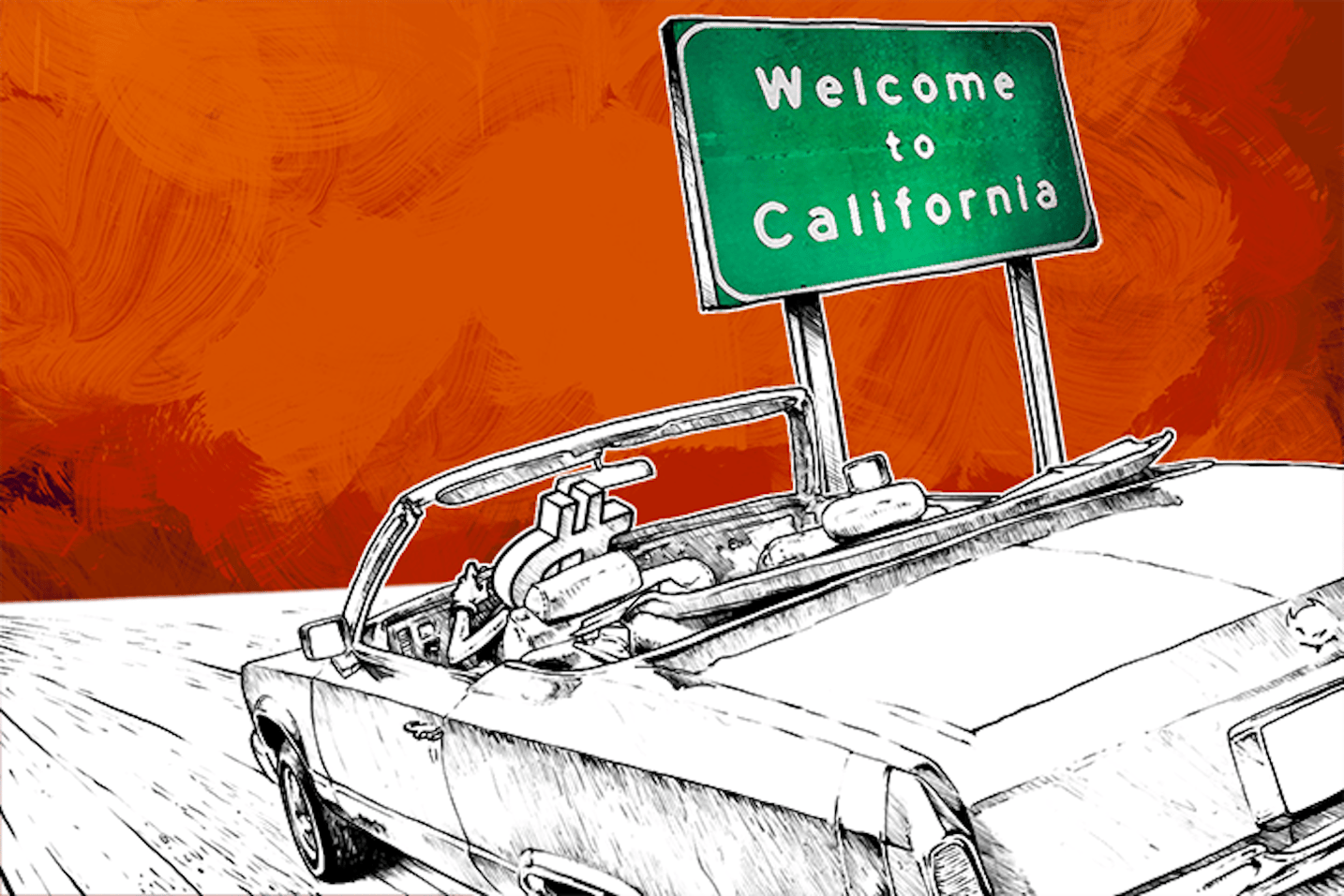[Editor's note: The original version of this article carried the headline “Bitcoin becomes legal tender for transactions in California.” The use of the phrase “legal tender” overstated the extent of the new legislation, and was inaccurate. Although alternative currencies are now legal for transaction in California, there is no legal obligation for their acceptance in transactions. Cointelegraph is sorry for the error.]
Among a raft of new legislation coming into force for 2015 in California is the bill AB129 passed by Governor Jerry Brown in mid-2014. Aimed at ending a prohibition against using any alternative to US dollars for commerce in the state, the bill recognizes and permits the use of alternate currencies for transactions, including digital currencies such as Bitcoin, at the legislative level.
This newly accepting stance makes California one of the more Bitcoin friendly states in a country where political opinion about the rise of digital currencies is heavily polarized. New York made headlines in July 2014 when its plans for far-reaching legislation around the control and monitoring of Bitcoin companies caused outrage in the digital currency and startup communities. Often termed the 'BitLicense,' the measures were aimed at making the decentralized, often-anonymous world of Bitcoin into a financial market more similar to the established financial market, through increased record keeping and registration hurdles around all transactions.
Feelings on the ground in New York also seemed less than positive this week with news of a community board in Manhattan rejecting the license for a planned “Decentralized Block Party” which was to offer “beers for Bitcoin,” and intended to show “creative ways to use a coin.”
A similar lack of enthusiasm also appeared in California's own mayoral elections last year, however, following the initial passing of this AB129 finance bill. Seeking to capitalize on the press coverage and interest in the digital currency world, Bryan Parker ran as a candidate for mayor of Oakland on a platform of integrating Bitcoin into the operation of the city, and to attract startups involved in digital currency technology to the area. His failure to become elected did not, therefore, continue the enthusiasm for Bitcoin to the ballot box.
Fletcher Starkey, owner of CDXX, a San Francisco based bar and grill that's been accepting Bitcoin since it opened in 2014, has greeted with enthusiasm the new bill taking effect. Talking to Cointelegraph, Starkey was proud of the state's move in the direction of legitimizing the digital currency, suggesting that:
“California is leading the charge toward a more secure and simple payment system, which benefits customers and merchants, instead of credit card companies.”
On being an early adopter of digital currency payments in the city, Starkey explained that CDXX has “plenty of tech savvy consumers and business owners, and many open-minded entrepreneurs. I wish everyone of my customers would trade in their Visa for Bitcoin.”
Long having been one of the new technology centers of the US, it's perhaps unsurprising that California is making headlines about leading the charge of Bitcoin acceptance in the country. The Silicon Valley area boasts 32 venture-capital-backed Bitcoin companies, more than the rest of the country put together, and state residents topped the chart for Googling “Bitcoin” more than any other state in 2014. The fact that Bitcoin has now been given the status of “legal money” will make further progress in not only raising awareness of the digital currency, but also encourage further merchants and services to accept the newly official currency as an alternative form of payment.
